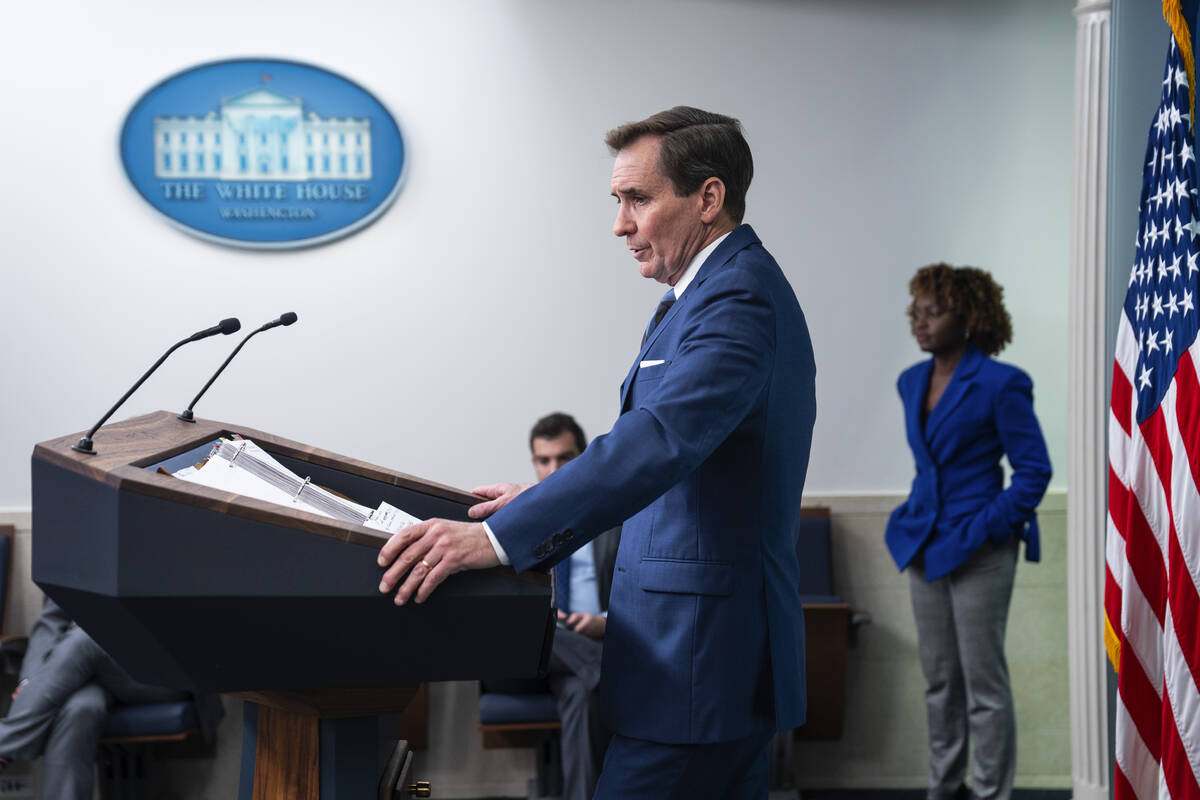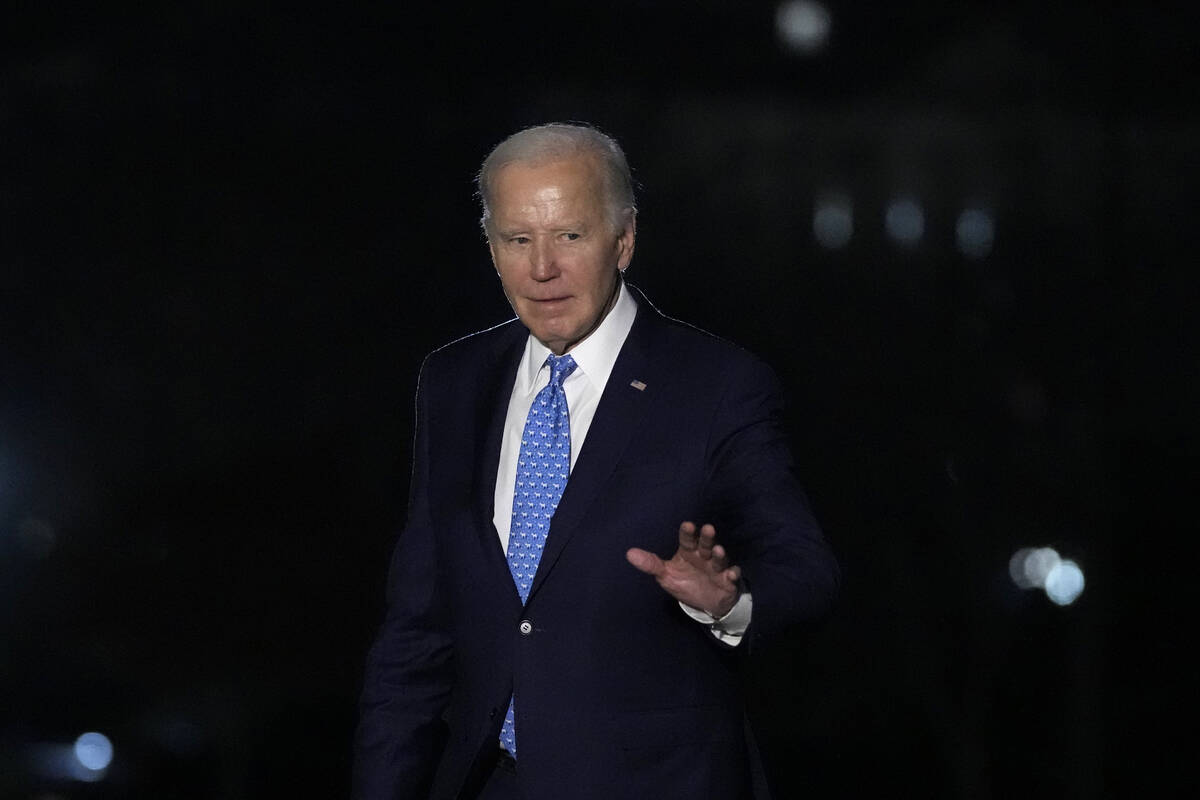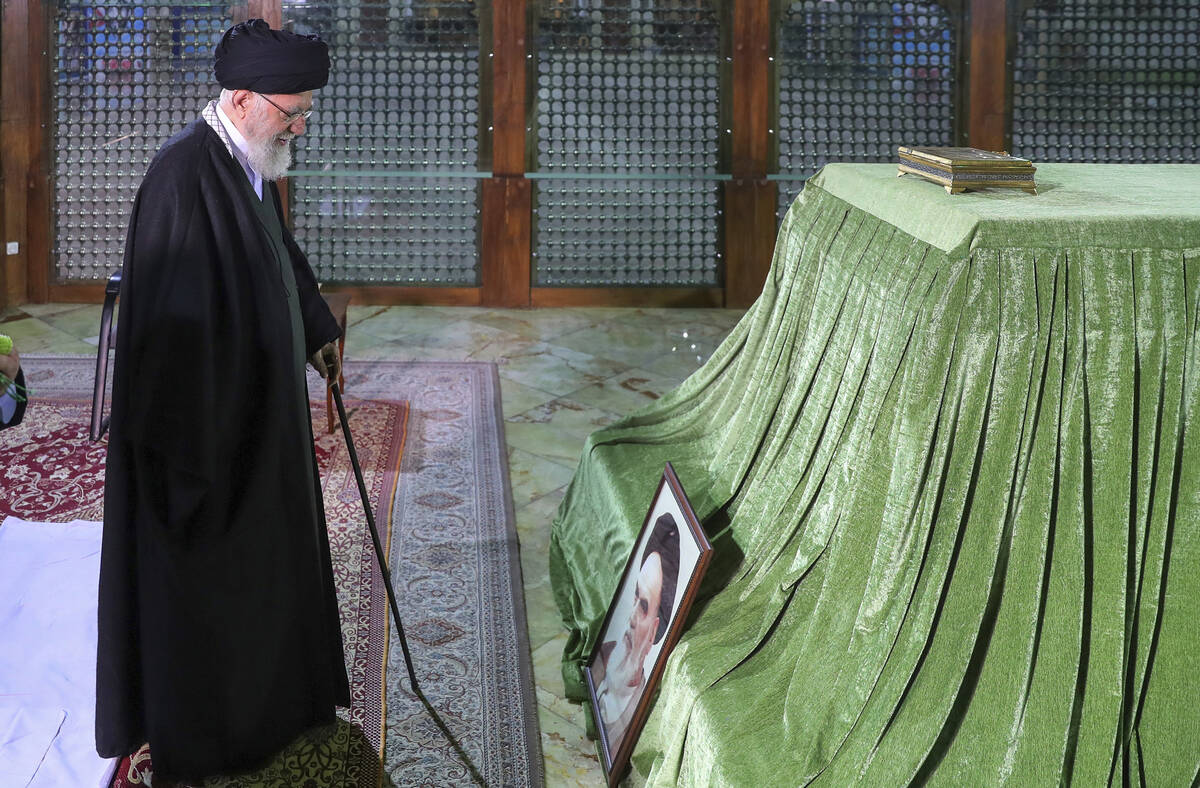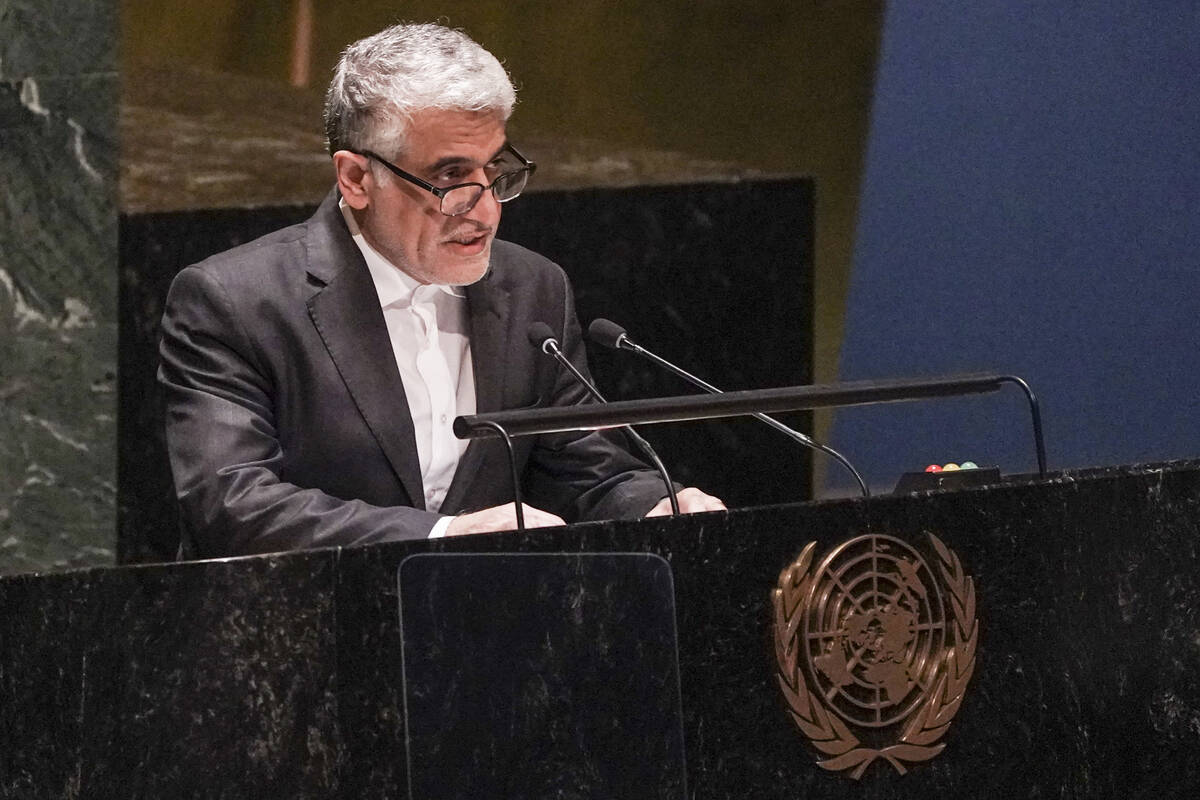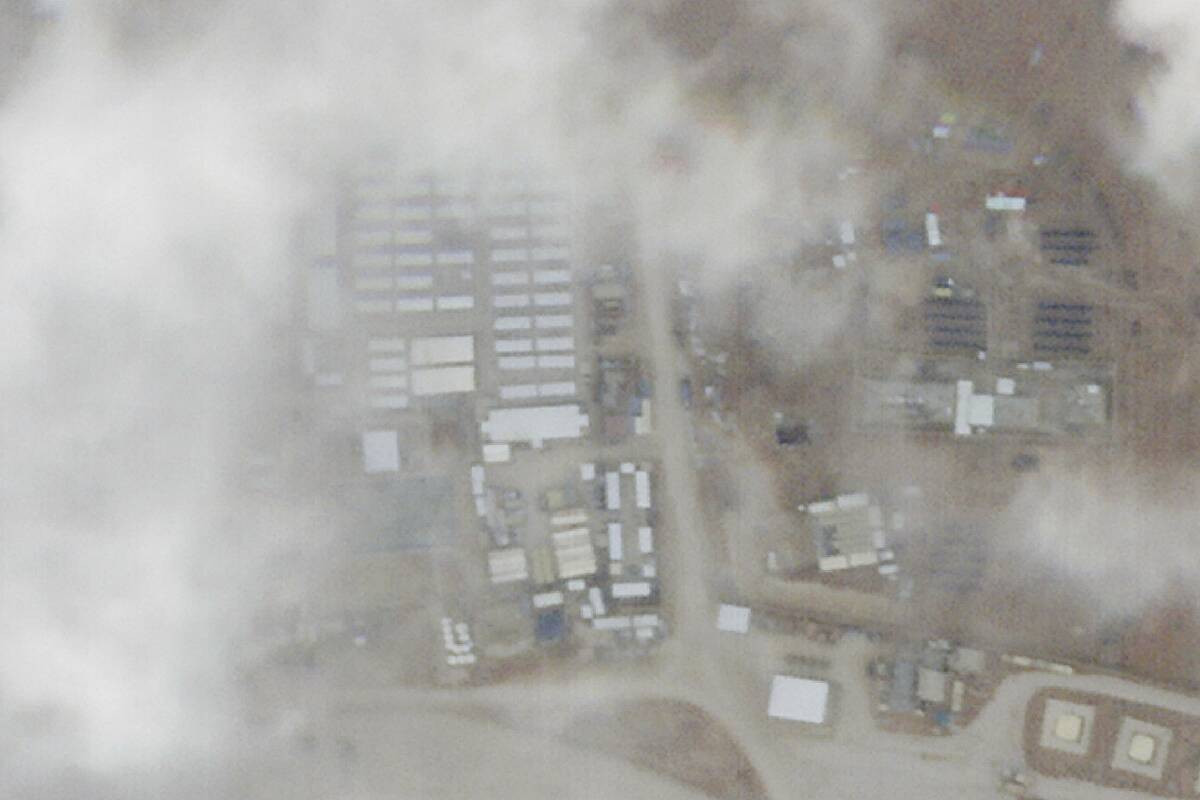US pins blame for deadly drone strike on Iran-backed militias
WASHINGTON — The United States on Wednesday attributed the drone attack that killed three U.S. service members in Jordan to the Islamic Resistance in Iraq, an umbrella group of Iran-backed militias, as President Joe Biden weighs his options to respond to the strike.
Iran threatened to “decisively respond” to any U.S. attack on the Islamic Republic after the U.S. said it held Tehran responsible.
The U.S. has signaled it is preparing for retaliatory strikes in the Mideast in the wake of the Sunday drone attack that also wounded more than 40 troops at Tower 22, a secretive base in northeastern Jordan that’s been crucial to the American presence in neighboring Syria.
National Security Council spokesman John Kirby said Wednesday the U.S. believes the attack was planned, resourced and facilitated by the Islamic Resistance in Iraq, an umbrella group that includes the terrorist group Kataib Hezbollah. He said Biden “believes that it is important to respond in an appropriate way.”
He said Biden was continuing to weigh his options, but Kirby said “the first thing you see won’t be the last thing,” adding it “won’t be a one-off.”
Kirby dismissed a statement by Iraqi militia Kataib Hezbollah announcing “the suspension of military and security operations against the occupation forces in order to prevent embarrassment to the Iraqi government.” He said the group can’t be taken at face value, and he added, “they’re not the only group that has been attacking us.”
Blinken returning to Middle East
Secretary of State Antony Blinken will return to the Middle East later this week on his fifth urgent diplomatic mission since Israel’s war with Hamas began in October, the White House and a State Department official said Wednesday.
Kirby and the State Department official said Blinken would travel to the Mideast this weekend as part of the Biden administration’s efforts to prepare for post-conflict reconstruction and governance of Gaza, ramp up humanitarian aid to Palestinian civilians, release hostages held by Hamas and prevent the war from spreading.
The trip comes as discussions over a cease-fire and hostage release are intensifying, but also as fears grow of a regional conflict.
“These negotiations, our negotiations, are very, very active,” Kirby said, noting talks held last weekend between CIA Director William Burns, senior Israeli and Egyptian intelligence officials and Qatar’s prime minister. “We believe that the discussions have been productive. They’ve been moving in the right direction.”
He also recalled a recent trip to the Mideast by national security council official Brett McGurk, a call between President Joe Biden and the emir of Qatar, whose country is the chief interlocutor with Hamas, and he said: Blinken “will be heading back over to the region at the end of this week.”
The State Department official said Blinken would be traveling to the Middle East “in the coming days” but could not give exact dates or destinations because the trip was still being planned. On his previous visits, Blinken has stopped in Israel, the West Bank, Jordan, Egypt, Qatar, Saudi Arabia, Bahrain, the United Arab Emirates, Turkey and Iraq.
Strikes and counterstrikes
As of Wednesday, Kataib Hezbollah and other Iran-aligned militias had launched 166 attacks on U.S. military installations since Oct. 18, including 67 in Iraq, 98 in Syria and the one in Jordan, according to the U.S. military.
The U.S. has struck back at the militias a few times over the past three months. On Oct. 27, U.S. fighter jets struck two weapons and ammunition storage sites in eastern Syria near Boukamal that were used by Iran’s Islamic Revolutionary Guard Corps and Iranian-backed groups.
Also in Syria, fighter jets dropped bombs on an IRGC weapons storage facility near Maysulun in Deir el-Zour on Nov. 8. And U.S. airstrikes targeted a training facility and a safe house in the Bulbul district of Mayadin on Nov. 12.
On Dec. 26, the U.S. launched strikes on three locations in Iraq used by Kataib Hezbollah and affiliated groups, and on Jan. 23, the U.S. struck three sites in Iraq, again targeting Kataib Hezbollah.
Any additional American strikes could further inflame a region already roiled by Israel’s ongoing war on Hamas in the Gaza Strip. The war began with Hamas attacking Israel on Oct. 7, killing some 1,200 people and taking about 250 hostage. Since then, Israeli strikes have killed more than 26,000 Palestinians and displaced nearly 2 million others from their homes, arousing anger throughout the Muslim world.
Violence has erupted across the Mideast, with Iran striking targets in Iraq, Pakistan and Syria, and the U.S. carrying out airstrikes targeting Yemen’s Iran-backed Houthi terrorists over their attacks on shipping in the Red Sea. Some observers fear a new round of strikes targeting Iran could tip the region into a wider war.
A U.S. Navy destroyer in the waterway shot down an anti-ship cruise missile launched by the Houthis late Tuesday, the latest attack targeting American forces patrolling the key maritime trade route, officials said. The U.S. later launched a new round of airstrikes targeting the Houthis.
The Iranian warnings first came from Amir Saeid Iravani, Iran’s ambassador to the United Nations in New York. He gave a briefing to Iranian journalists late Tuesday, according to the state-run IRNA news agency.
“The Islamic Republic would decisively respond to any attack on the county, its interests and nationals under any pretexts,” IRNA quoted Iravani as saying. He described any possible Iranian retaliation as a “strong response,” without elaborating.
The Iranian mission to the U.N. did not respond to requests for comment or elaboration Wednesday on Iravani’s remarks.
Iravani also denied that Iran and the U.S. had exchanged any messages over the last few days, either through intermediaries or directly. The pan-Arab satellite channel Al Jazeera, which is based in and funded by Qatar, reported earlier that such communication had taken place. Qatar often serves as an intermediary between Washington and Tehran.
But Iran’s government has taken note of the U.S. threats of retaliation for the attack on the base in Jordan.
“Sometime, our enemies raise the threat, and nowadays we hear some threats in between words by American officials,” Revolutionary Guard commander Gen. Hossein Salami, who answers only to Supreme Leader Ayatollah Ali Khamenei, said at an event Wednesday. “We tell them that you have experienced us, and we know each other. We do not leave any threat without an answer.”
“We are not after war, but we have no fear of war,” he added, according to IRNA.
Kirby, for his part, said the U.S. doesn’t “seek a war with Iran. We’re not looking for a broader conflict.”
Air defenses at high alert
On Saturday, a general in charge of Iran’s air defenses described them as being at their “highest defensive readiness.” That raises concerns for commercial aviation traveling through and over Iran as well. After a U.S. drone strike killed a top general in 2020, Iranian air defenses mistakenly shot down a Ukrainian passenger plane, killing all 176 people on board.
Meanwhile, attacks by the Houthis continue in the Red Sea. A missile launched Tuesday night targeted the USS Gravely, an Arleigh Burke-class guided missile destroyer, the U.S. military’s Central Command said in a statement. No injuries or damage were reported.
A Houthi military spokesman, Brig. Gen. Yahya Saree, claimed responsibility for the attack in a statement Wednesday morning, calling it “a victory for the oppression of the Palestinian people and a response to the American-British aggression against our country.”
Saree claimed the Houthis fired “several” missiles, something not acknowledged by the U.S. Navy. Houthi claims have been exaggerated in the past, and their missiles sometimes crash on land and fail to reach their targets.
On Wednesday, a U.S. military jet struck a surface-to-air missile that was about to launch from Houthi-controlled Yemen, a U.S. official said. The missile was deemed an immediate threat and destroyed. The official spoke on the condition of anonymity to provide details ahead of a public announcement.
Since November, the terrorists have repeatedly targeted ships in the Red Sea over Israel’s offensive against Hamas in Gaza. But they have frequently targeted vessels with tenuous or no clear links to Israel, imperiling shipping in a key route for global trade between Asia, the Mideast and Europe.
The Houthis hit a commercial vessel with a missile on Friday, sparking a fire that burned for hours.
The U.S. and the United Kingdom have launched multiple rounds of airstrikes targeting the Houthis as allied warships patrol the waterways affected by the attacks. The European Union also plans to launch a naval mission in the Red Sea within three weeks to help defend cargo ships against the Houthi attacks, the bloc’s top diplomat said Wednesday.



